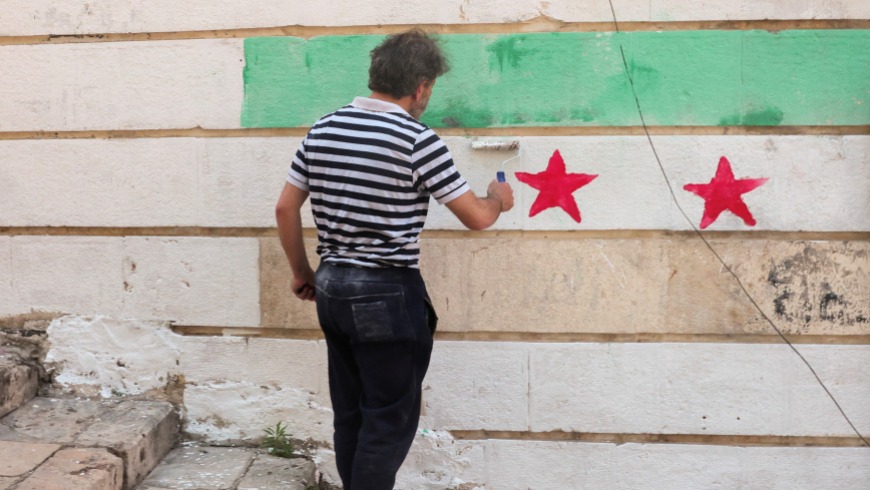A qualitative shift has occurred in international and regional attitudes towards the Syrian state, catalysed by the political transformation initiated by Syrians on 8 December 2024. This shift has been marked by swift and, at times, unexpected developments—most notably, President Trump’s decision to lift sanctions on Syria, soon followed by a similar move from Europe. These steps, alongside broader international—particularly American—engagement with the new Syrian government, reflect a clear desire to see a fundamentally different Syria from that which existed under the Assad regime.
As this pivotal chapter in Syria’s history unfolds, evidenced by the international community’s positive engagement with the current leadership, many Syrians are calling on the government not to rely solely on external gains. The legitimacy earned abroad must be matched by a domestic course of action that meets the expectations of the Syrian people. Some argue that the durability of Syria’s international success hinges on its ability to secure public trust at home—on Syrians seeing themselves as active participants in governance, not merely as subjects. Increasingly, perceptions are emerging that the ruling leadership is becoming monolithic. Many believe the state’s administrative, civil, and military apparatus is largely dominated by Hay’at Tahrir al-Sham (HTS) and allied armed factions—effectively enacting the logic of “he who liberates, governs.”
Before assessing the validity of this criticism, one must acknowledge a fundamental political truth: the monopolisation of power is a characteristic of all regimes, regardless of ideology. Any political entity, once in power, inevitably shifts its priorities—often sacrificing its founding values in pursuit of authority. Power, by nature, tends toward centralisation, exclusivity, and the consolidation of control. No regime voluntarily surrenders authority out of benevolence; it does so only under the pressure of two critical factors:
- A constitution and a body of binding laws that compel rulers to act within defined limits.
- A robust ecosystem of political and civic forces—be they parties, movements, professional associations or civil society organisations—capable of monitoring, holding accountable, and legally restraining the government. These forces must be rooted in grassroots support and attuned to the lived experiences of citizens, rather than being mere digital constructs on social media.
Although the transitional government issued a constitutional declaration on 13 March, it has yet to enact laws regulating political parties. Nevertheless, civil society associations and organisations can begin to form under the existing framework outlined by the Ministry of Social Affairs and Labour.
Much has been written about the desolation of political life under Assad, and the absence of a robust partisan tradition in Syria. Yet it is equally true that Syria now stands at a defining crossroads—an opportunity that must be seized. The regime of repression and the legal scaffolding that normalised the confiscation of rights and perpetuated violence have been dismantled. What is now required is the emergence of dynamic political and civic forces on the ground—ones that embody the pluralism Syrians have long aspired to, and which can serve as a bulwark against the monopolisation of decision-making.
Persistent calls for inclusive governance and the rejection of monopolistic rule are not simply idealistic—they are fundamental requirements for any modern, developmental state. While concentrating power in the hands of a single faction may serve short-term political goals, it ultimately undermines the long-term stability and development needed for national recovery.
Syrians are justified in demanding a role in shaping their country’s future. Every citizen with the ability and competence to contribute meaningfully to national reconstruction deserves the opportunity to do so. However, this engagement must be channelled through institutional and legal frameworks—not pursued through personal ambition or opportunistic networking. Unfortunately, since the early days of liberation, many individuals have crowded Damascus’s hotels and cafés seeking meetings with officials, photo opportunities, and personal connections—hoping such access might translate into employment or appointments. This behaviour reduces public service to favouritism and cheapens the sacrifices of Syrians and the noble ideals of their revolution. Worse still, it reproduces the same culture of corruption that defined the now-defunct Assad regime.
There is also rising frustration among large segments of the population over the exclusion of experienced national figures—individuals who earned their credibility during the revolution, or even before it. These voices have often been sidelined in favour of newcomers lacking any revolutionary background, and in some cases, with histories marked by political ambiguity or support for the former regime. This frustration is not without merit. What we are witnessing is a clash between two fundamentally different mindsets: the revolutionary ethos—rooted in values and moral conviction—and the logic of power, which proclaims, “The revolution is over—now we build the state.” The latter is deeply pragmatic and is often used by those in authority to justify exclusionary practices.
Even if the revolutionary struggle has ended militarily, its moral and ethical legacy must endure. State-building undeniably requires institutions, policies, and technical expertise distinct from the revolutionary impulse to dismantle tyranny. Yet the revolution’s values—justice, dignity, and inclusivity—can and should guide this new phase. These are not relics of the past; they are pillars that can underpin the moral strength of the new state and serve as the foundation for a secure and just future.
In any scenario, the insistence on power-sharing and inclusive governance is not merely desirable—it is essential. Exclusion and concentration of power may produce administrative expediency in the short term, but they come at the cost of long-term coherence and viability. No government—anywhere or at any time—surrenders power or embraces inclusion out of sheer goodwill. It is only compelled to do so through mechanisms of law and institutional oversight. It is the rule of law—not the virtue of rulers—that ensures power does not descend into tyranny. And when the law prevails, it becomes a source of strength for both the state and its people.
This article was translated and edited by The Syrian Observer. The Syrian Observer has not verified the content of this story. Responsibility for the information and views set out in this article lies entirely with the author.


